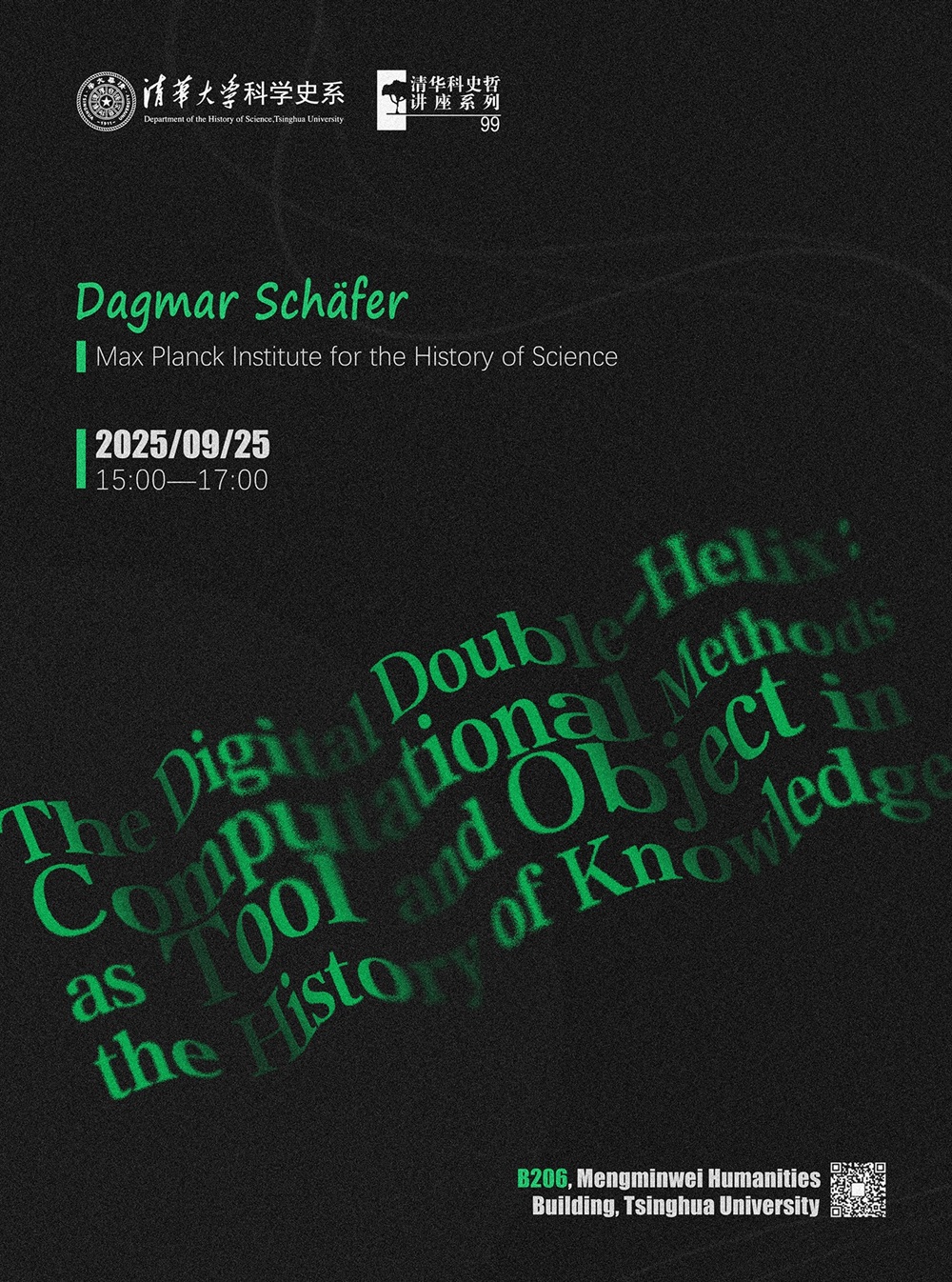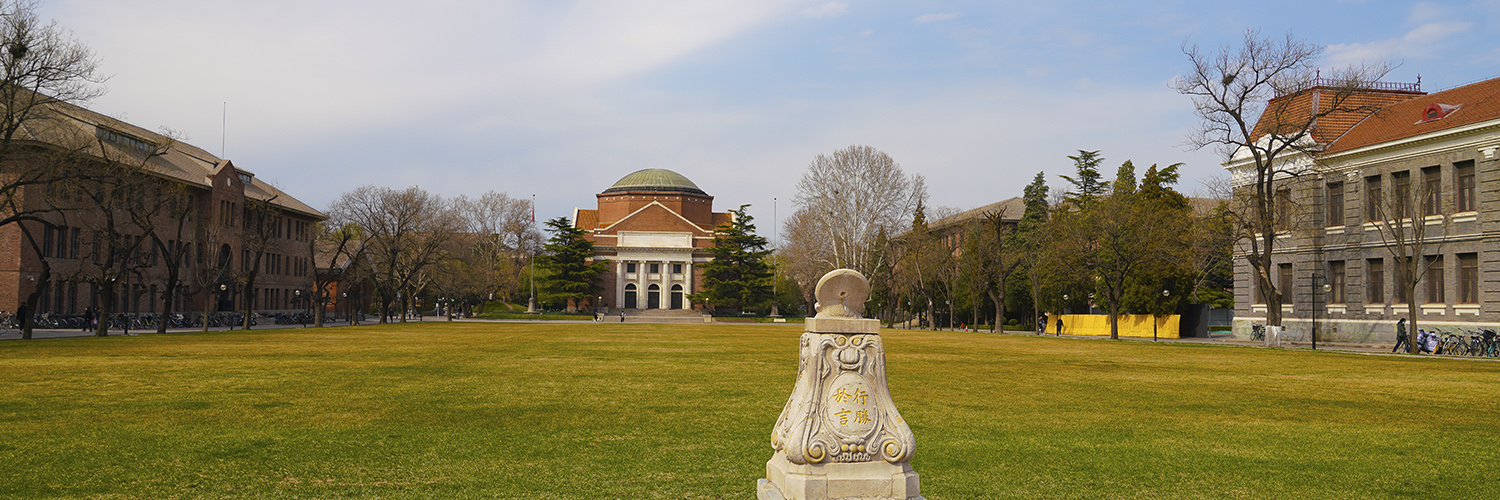时间:2025年9月25日 15:00—17:00
地点:清华大学人文楼B206
主题:The Digital Double-Helix: Computational Methods as Tool and Object in the History of Knowledge
主讲人:Dagmar Schäfer (Max Planck Institute for the History of Science)

讲座摘要
主讲人简介
Dagmar Schäfer(薛凤) is fascinated by past practices and discourses of making and how they affect us today. A sinologist and historian of science and technology, her research interests range from the history and sociology of technology of China to the paradigms configuring the discourse on technological development, past and present. She received her doctorate in Würzburg in 1996 and her habilitation in 2005. After leading an MPIWG Independent Research Group on the History of Science and Technology in China, she was granted the Chair of China Studies and History of Technology at The University of Manchester in 2011, and took up directorship of the Department Artifacts, Action, Knowledge in 2013. Dagmar Schäfer is Honorary Professor at Technische Universität Berlin (History of Science and Technology), Freie Universität Berlin (China Studies), and at Northwest University, Xi'an. Recent guest professorships and residential scholarships include the Shanghai Jiao Tong University, 2017, the IAS Princeton, 2019, and the European University Institute, Florence, in 2022.
Dagmar Schäfer has published widely on the premodern history of China (Song-Ming) and technology, materiality, the processes and structures that lead to varying knowledge systems, and the changing role of artifacts—texts, objects, and spaces—in the creation, diffusion, and use of scientific and technological knowledge.
Her monograph, The Crafting of the 10,000 Things: Knowledge and Technology in Seventeenth-Century China (University of Chicago Press, 2011), received the Pfizer Award and Joseph Levenson Book Prize. Recent publications include the working group volumes Ownership of Knowledge: Beyond Intellectual Property (MIT Press, 2023), coedited with Annapurna Mamidipudi and Marius Buning, and Plurilingualism in Traditional Eurasian Scholarship: Thinking in Many Tongues (Brill, 2023), coedited with Glenn W. Most and Mårten Söderblom Saarela; as well as the History and Technology special issue “Making History: Technologies of Production and the Estate of Knowledge in East Asia,” coedited with Victor Seow (2022).
In 2020 Dagmar Schäfer was awarded the Gottfried Wilhelm Leibniz Prize by the DFG (German Research Foundation) for her development of new approaches to cultural studies and the resulting comparative perspectives on a comprehensive global history.


